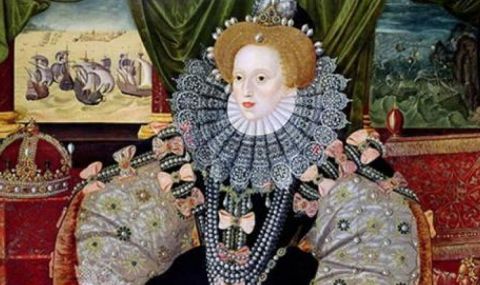On November 17, 1558, after the death of Queen Mary Tudor, Elizabeth I ascended the English throne.
The people adore their young queen, who restores Protestantism as the main religion of the state (but also very wisely allows Catholics to celebrate their masses). With the help of her very good advisers, and especially relying on the advice of William Cecil, Baron Burghley, Elizabeth I pursued an active policy, emphasizing the economy - its main goal was the development of industrial production and trade.
In the years of Elizabeth's reign, England became a great sea power. The Queen not only encouraged the construction of new ships, but also patronized successful sea traders, as well as pirates robbing the ships of the Spanish - England's enemy. The victory of the English fleet over the Spanish Armada broke Spain's naval dominance and marked the transition of leadership to England.
In the political life of the state, the strengthening of absolutism continues. However, Elizabeth never married, remaining the "virgin queen" (at least officially). Not that there is no shortage of royals who offered her their hand and "half the kingdom". But Elizabeth I rejects all proposals.
Elizabeth's power is absolute, but she has to fight a complicated battle with Mary Stuart. The Queen of Scots is her cousin - Henry VII happens to be the grandfather of both. But Mary considers herself the heir to the throne, and Elizabeth, Anne Boleyn's daughter, an "illegitimate child". This opposition takes place against the backdrop of the Anglo-Scottish Wars and is a major problem in itself. In the end, Elizabeth emerges victorious in this battle as well, after capturing her rival. Mary Stuart was executed, and ironically, the son of the decapitated Mary Scots inherited the English throne from Elizabeth - since she herself had no children, she passed the throne to her nephew James I, who finally succeeded in uniting England and Scotland under a single authority.
The last years of Elizabeth I's life were marked by her deteriorating health and the constant loss of people close to her. In February 1603, the queen fell into a deep depression and the melancholy that overtook her foreshadowed her approaching end.
Elizabeth I rested on March 24, 1603 in Richmond Palace.
